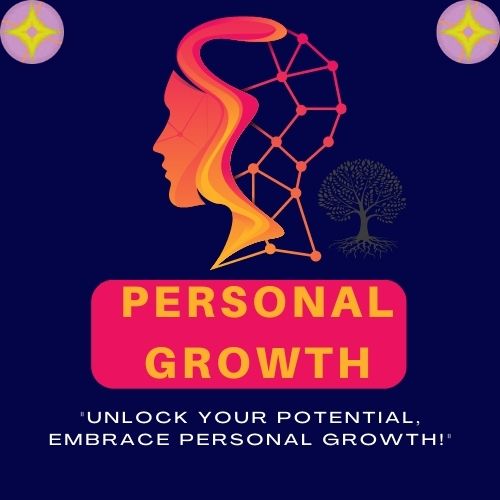Strategies for Enhancing Emotional Intelligence (EQ) Through Self-Development
Emotional Intelligence (EQ) is a crucial skill that plays a significant role in our personal and professional lives. It encompasses our ability to recognize, understand, manage, and effectively use our own emotions, as well as those of others. A high EQ can lead to improved relationships, better decision-making, and increased overall well-being. Fortunately, EQ is not a fixed trait; it can be developed and enhanced through self-development efforts.Here are the key advantages of possessing a high level of emotional intelligence:
Improved Relationships: High EQ individuals are better at understanding and managing their emotions and the emotions of others. This skill fosters healthier and more harmonious relationships, both personally and professionally. They are skilled communicators, empathetic listeners, and are adept at resolving conflicts constructively.
Effective Leadership: Leaders with high EQ are more inspiring, motivating, and approachable. They can connect with their teams on an emotional level, leading to increased employee engagement, loyalty, and productivity. Additionally, EQ helps leaders make informed decisions and navigate challenges more effectively.
Enhanced Communication: EQ enables individuals to communicate more effectively by being attuned to non-verbal cues, understanding the emotional subtext of conversations, and conveying their own thoughts and feelings clearly. This skill is invaluable in personal and professional settings.
Stress Management: People with high EQ can manage stress more effectively. They have the emotional resilience to cope with pressure and setbacks, reducing the negative impact of stress on their mental and physical well-being.
Better Decision-Making: EQ complements cognitive intelligence (IQ) by incorporating emotions into the decision-making process. High EQ individuals consider not only the logical aspects but also the emotional implications of their choices, resulting in more thoughtful and well-rounded decisions.
Increased Well-Being: Overall, a high level of emotional intelligence contributes to greater well-being and life satisfaction. EQ helps individuals regulate their emotions, maintain a positive outlook, and build resilience, all of which are essential for long-term happiness and fulfillment.
- 1. Self-Awareness
Self-awareness is the foundation of emotional intelligence. It involves understanding your emotions, strengths, weaknesses, and values, and how they influence your behavior. a. Reflect: Take time regularly to reflect on your emotions, actions, and reactions. Journaling can be a valuable tool to record your thoughts and feelings.
b. Seek Feedback: Ask for honest feedback from trusted friends, family, or colleagues to gain insights into how others perceive you.
c. Mindfulness and Meditation: Practicing mindfulness and meditation can help you become more attuned to your thoughts and emotions, enabling you to identify patterns and triggers.
- 2. Self-Regulation
Self-regulation is the ability to manage and control your emotions effectively.a. Deep Breathing: When you feel overwhelmed by emotions, practice deep breathing techniques to calm your nervous system and regain control.
b. Stress Management: Develop healthy stress coping mechanisms, such as exercise, meditation, or engaging in hobbies.
c. Pause and Reflect: Before reacting to emotionally charged situations, take a moment to pause and consider the consequences of your actions.
- 3. Empathy
Empathy is the ability to understand and share the feelings of others. a. Active Listening: Practice active listening by giving your full attention to the speaker, avoiding interruptions, and asking clarifying questions.
b. Perspective-Taking: Try to see situations from another person's point of view. This can be particularly useful in resolving conflicts and building stronger relationships.
c. Volunteer and Help Others: Engage in activities that allow you to connect with people from diverse backgrounds and experiences.
- 4. Social Skills
Social skills are essential for building and maintaining healthy relationships.a. Effective Communication: Work on improving your communication skills, including verbal and non-verbal cues, to convey your thoughts and emotions clearly.
b. Conflict Resolution: Learn how to resolve conflicts constructively by finding common ground and seeking win-win solutions.
c. Networking: Build a strong professional and social network by attending events and connecting with people who share your interests.
- 5. Continuous Learning
Emotional intelligence is an ongoing journey of self-improvement. a. Read and Educate Yourself: Explore books, articles, and courses on emotional intelligence, psychology, and personal development.
b. Practice Empathy Daily: Challenge yourself to empathize with people you encounter in your daily life, from coworkers to strangers.
c. Set Goals: Establish specific, measurable, and achievable goals for enhancing your EQ, and track your progress.
Conclusion
Enhancing emotional intelligence through self-development is a lifelong process that can lead to profound personal and professional growth. By cultivating self-awareness, self-regulation, empathy, and social skills, individuals can build stronger relationships, make better decisions, and lead more fulfilling lives. Remember that improving your EQ takes time and effort, but the benefits are well worth it. Start your journey towards enhanced emotional intelligence today, and watch as it positively impacts every aspect of your life.FAQs:
Emotional Intelligence (EQ) is undeniably important for success, both in one's personal and professional life. Here's why EQ plays a crucial role in achieving success:
Effective Communication: Success often hinges on your ability to communicate effectively with others. High EQ individuals excel at both verbal and non-verbal communication, which is essential for building relationships, collaborating with colleagues, and persuading others.
Leadership and Teamwork: Whether you're in a leadership position or part of a team, EQ is vital. Leaders with high EQ are better at motivating and inspiring their teams, while team members with strong EQ can collaborate harmoniously and resolve conflicts constructively.
Decision-Making: Success frequently involves making complex decisions. EQ helps you make better decisions by considering not only the rational aspects but also the emotional implications and the impact on others.
Adaptability: Success often requires adapting to changing circumstances and dealing with unexpected challenges. High EQ individuals are more adaptable because they can manage their emotions, stay calm under pressure, and remain open to new ideas and approaches.
Conflict Resolution: In both personal and professional settings, conflicts can arise. People with high EQ can navigate conflicts more effectively by understanding the perspectives and emotions of all parties involved, leading to better resolution outcomes.
Networking: Building a strong professional network is a key factor in success. EQ helps you form and maintain meaningful connections by being empathetic, approachable, and attuned to the needs and feelings of others.
Resilience: Success often involves setbacks and failures along the way. High-EQ individuals are more resilient because they can bounce back from adversity, maintain a positive outlook, and learn from their experiences.
Motivation: Success is driven by motivation and the ability to set and pursue goals. EQ helps you understand your intrinsic motivations, stay focused on your objectives, and maintain enthusiasm even when faced with challenges.
Self-Management: Success starts with self-management. EQ enables you to regulate your emotions, manage stress, and make decisions that align with your long-term goals, leading to more consistent and sustainable success.
Relationships: Success is not just about individual achievement; it often depends on your ability to build and nurture relationships. High-EQ individuals are more adept at creating and maintaining positive connections with others, which can open doors to opportunities and collaborations.
What is the importance of EQ in self-management?
Self-Awareness
Self-Regulation
Stress Management
Adaptability
Resilience
Motivation
Interpersonal Skills
Decision-Making
Time Management
Overall Well-Being




